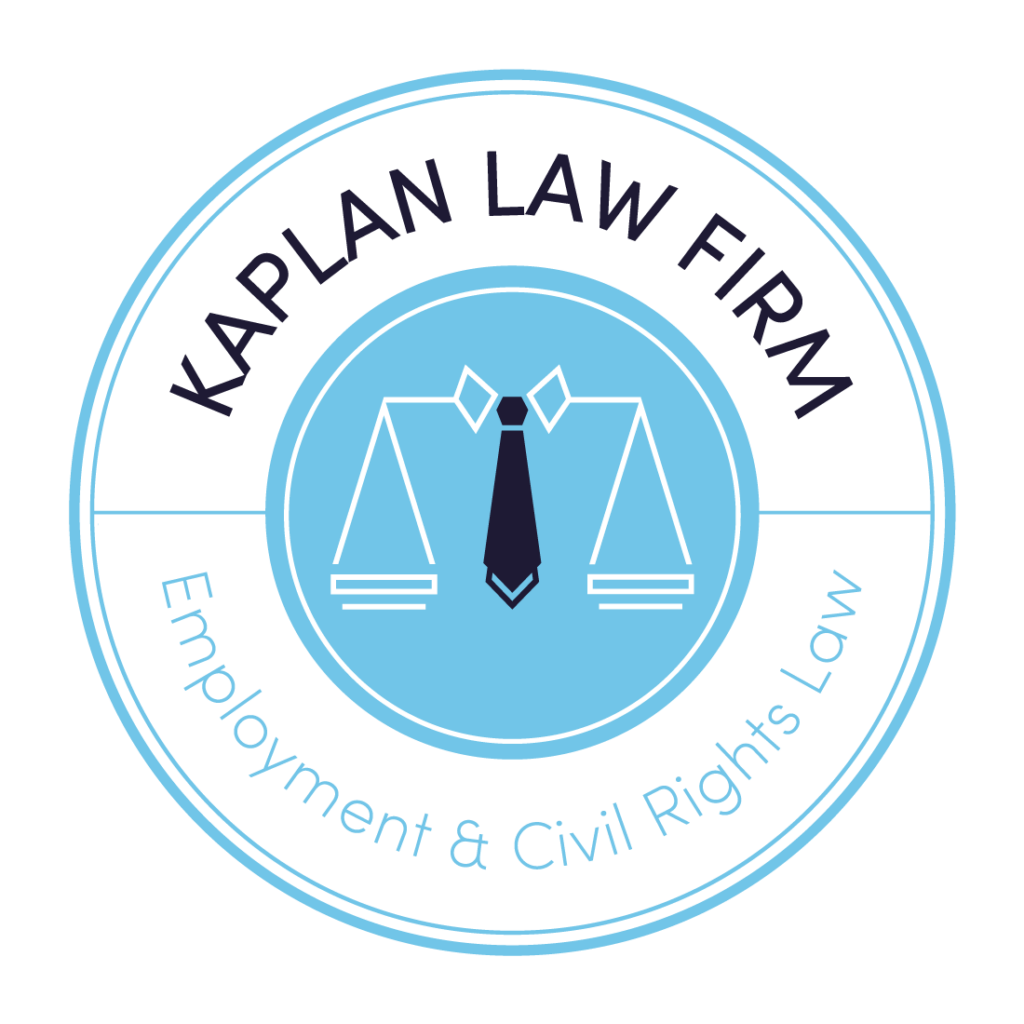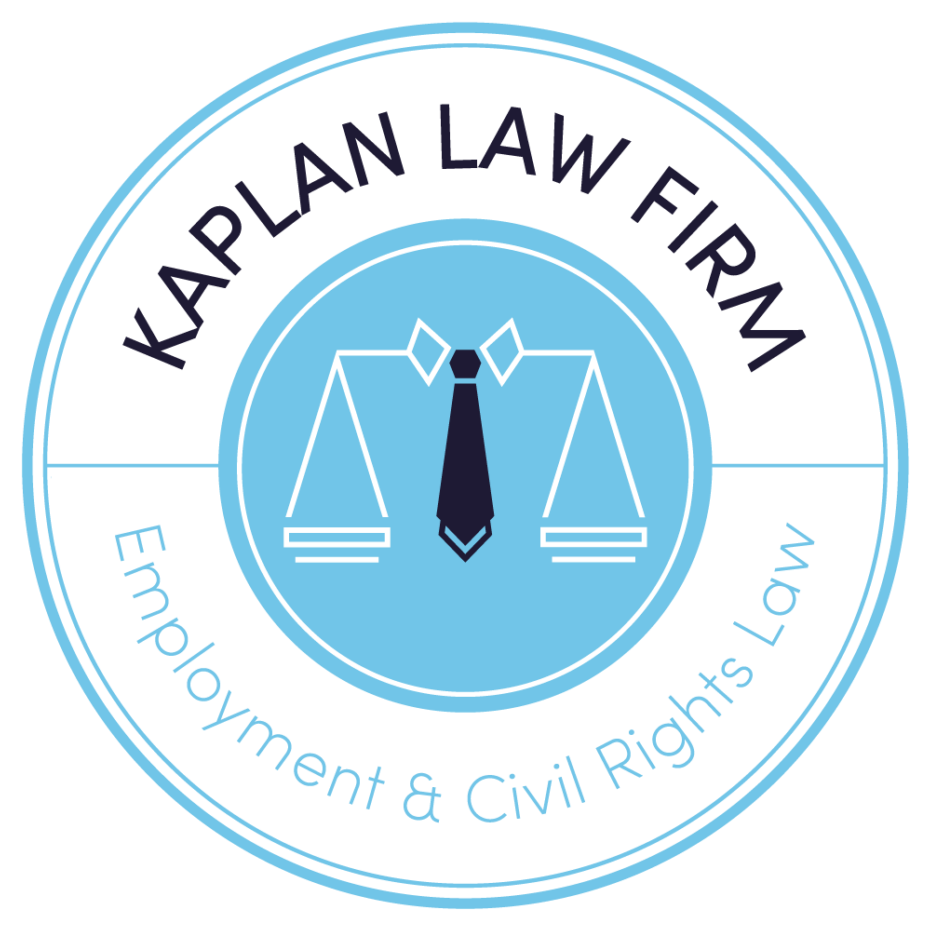Stay up to Date!

Sometimes, when companies mistreat their employees, it goes beyond just legal violations—it becomes personal. They make you feel like you're bad at your job, and it gets in your head. It can really take an emotional toll, leaving people upset and doubting themselves. This is where we step in, offering more than just legal advice—we help clients regain control over their situation. One of the most rewarding aspects of what we do is seeing the transformation in our clients. By the end of a consultation, many say, “I feel like I’m back in the driver’s seat of my career and my life.” It’s empowering to give people clarity, even in a single hour, by breaking things down into clear categories. We’re there to help them make informed decisions and move past a bad situation toward something better. It’s about getting unstuck and reclaiming control. Helping clients in this way is truly an honor—it feels amazing to collaborate and make a real difference in their lives. When things start going wrong at work, it can feel overwhelming. There’s often a mix of problems—some that look bad but aren’t actionable and others that may involve real legal violations. That’s where we come in. We help cut through the fog, sorting out the issues into clear categories: What’s unfair but not illegal. What is illegal and actionable. What steps you can take, potential outcomes, and damages you might expect. Our goal is to guide clients to the next step as efficiently as possible, ideally with more clarity, confidence, and money in their pockets. We’re not career coaches, but we do offer strategic planning for people who feel stuck. It’s important to understand that if your company is taking advantage of you, they likely have lawyers advising them on how to do it. You don’t want to be caught flat-footed. That’s why having your own lawyer, even for just an hour-long consultation, is invaluable. We make this process easy. You can book online and often get an appointment as soon as the next day. During the consultation, we’ll assess your situation, explain your rights, and provide actionable next steps. Sometimes, clients find out that what’s happening isn’t illegal, but we still offer practical advice to put them in the best possible position. And let’s be honest—most people have a story about a time they wish they had consulted a lawyer. Even I was misclassified and underpaid before law school and didn’t realize it. I signed documents without understanding my rights, and I missed out. That experience inspired us to create a system where anyone can access a lawyer quickly, affordably, and with peace of mind. Not every consultation leads to a legal claim, but the information and strategy you gain are always valuable. Even if the issue isn’t illegal, knowing your options can help you move forward with confidence. So, if everything at work is great, you probably don’t need us. But if things are going wrong, and you’re relying on advice from non-lawyers, random people on the internet, or just your gut, you might be missing something critical. Our service is unique—we’ve built it specifically to help current employees navigate these challenges and take back control of their careers. That’s how we approach these situations. It’s not just about the immediate fix—it’s about bringing years of expertise to the table so our clients can move forward with confidence and success.

Almost every salesperson knows the drill: if your commission isn’t paid, you email, call, or escalate the issue to HR or your manager. You make a fuss and try to get the money you’re owed. Unfortunately, in states like Texas, there’s little protection if you’re fired for speaking up. Shockingly, it’s not illegal in many cases. Most people try to handle it themselves, which is understandable. But if that approach doesn’t work, and there’s a significant amount of money at stake, it’s time to consult an attorney. A lawyer can review your situation and help determine if your rights have been violated. For example, if your commission was withheld under a discretionary commission plan, there may not be a strong case. However, there could be other legal violations—like unpaid overtime—that you’re unaware of. In fact, we often uncover additional issues during our consultations, making it worthwhile to check in with a lawyer. One common mistake we see is people relying on advice from unqualified sources. Sales workers often turn to LinkedIn or other platforms for guidance, listening to "talking heads" offering free advice. The problem? Most of these individuals aren’t attorneys, and their advice is often incomplete or outright incorrect. This misinformation can lead to missed opportunities for salespeople to recover what they’re owed. Even at Kaplan Law, we don’t offer cookie-cutter advice. Each case requires a detailed analysis to understand how the law applies to your specific circumstances. That’s why taking the time to consult with a qualified attorney is critical. To put it in sales terms: there’s a lot of money on the table, and sales professionals are leaving it there by not seeking proper legal guidance when something feels off. If you suspect a problem with your pay or treatment, consulting with an experienced lawyer can make all the difference in getting what you deserve. If you’re a salesperson who feels mistreated or underpaid, here are the steps you should take: Understand Your Pay Structure: Review your employment contract, commission plan, and any policies regarding overtime or bonuses. Track Your Hours: If you’re inside sales, document the hours you work, especially overtime, to identify potential violations. Keep Records of Communication: Save emails, texts, and other documentation related to commission disputes, quotas, or workplace grievances. Know Your Rights: Learn about your protections under the FLSA and local labor laws. Consult an Attorney: Reach out to a law firm experienced in employment rights. We can help assess your case and guide you through your legal options. Why It Matters Sales employees deserve to be compensated fairly for their hard work. Companies that exploit their sales teams not only violate the law but also undermine the value of their workforce. In Austin, where tech companies frequently relocate for cost savings, ensuring fair treatment for sales employees is more important than ever. If you’re a sales professional facing unfair pay or workplace mistreatment, know that you don’t have to face it alone. We’re here to fight for your rights and help you get the compensation and respect you deserve.

Sales employees play a critical role in generating revenue for their companies. Yet, far too often, they are undervalued, overworked, and unfairly compensated. At our firm, we’ve seen countless cases where salespeople are promised fair pay—only to face broken promises, discrimination, or outright exploitation. Sales teams face unique challenges, from unrealistic quotas to retaliatory treatment when they stand up for their rights. In our work, we’ve had significant success in helping sales employees who’ve been wronged. Whether it’s recovering unpaid commissions, addressing overtime violations, or challenging discrimination, we’re here to ensure salespeople are treated fairly under the law. The Challenges Sales Employees Face Breach of Commission Contracts or Incentive Plans: We've noticed as a team that one major problem that is occurring for sales employees is companies are breaching their commission contracts or incentive plans. Many sales roles include a base salary plus commission. However, when it comes time for companies to honor their incentive plans, the promised commissions often vanish into "fine print." Companies frequently make earning commissions unnecessarily difficult, leaving salespeople shortchanged for the revenue they helped generate. We believe this is where we can truly make a difference for people. At Kaplan Law, we know the law and have many tactics in our toolkit to resolve these issues without litigation whenever possible. However, when litigation becomes necessary, we’ve had significant success, securing favorable outcomes for our clients. Overtime Violations: Shockingly, many salespeople don’t realize they’re legally owed overtime pay if their base salary outweighs their commissions. Many companies have adjusted their job descriptions to clearly classify employees as hourly roles with overtime, aiming to avoid the additional costs associated with overtime pay that commission-based employees are often entitled to. At Kaplan Law, we have brought numerous cases against various tech companies, including TikTok. When the sales force operates on a base-plus-commission structure, but w base salary exceeds the commission for inside sales roles, it violates labor laws. This practice is not allowed, and we’re committed to holding companies accountable. There seems to be a significant misconception about employment laws among both workers and management in the sales industry. Unfortunately, management often takes advantage of this misunderstanding. They might offer a high base salary with commission but then make earning that commission exceedingly difficult. While employees are led to believe meeting their targets will be straightforward, the reality is far more complicated. Companies often shift the burden onto employees, expecting them to work long hours—nights, weekends, early mornings—sacrificing personal time and family moments like attending their kids' games, all to close sales. Yet, despite the grueling hours, employees don't receive additional pay for their efforts. This creates a frustrating situation. While sales employees may earn decent pay, it’s often not proportional to the time and energy they invest. Oddly enough, we’ve noticed that employees struggling to meet their numbers often end up working the longest hours, trying desperately to catch up. And companies? They’re fine with it, as it costs them nothing extra. If this were a clerk or hourly employee, the law would mandate overtime pay for those additional hours. Under the Fair Labor Standards Act (FLSA), employees are entitled to overtime, yet many companies in the sales industry fail to comply. At Kaplan Law, we’re one of the leading firms tackling these issues. One particular area we focus on is what’s known as the 7(i) exemption under the FLSA, which governs how sales employees are compensated. Many salespeople don’t even realize their rights are being violated. That’s why we ask crucial questions when they reach out: How are you paid? How many hours do you work? Does your base salary exceed your commission? Are you predominantly working inside sales? In today’s world, most sales work is done remotely—via Zoom, WebEx, phone calls, or emails—whether from home, an office, or another location. Face-to-face sales interactions, such as meetings with customers at bars or restaurants, have become increasingly rare. This shift to inside sales has led to countless violations of labor laws, but few workers are aware of the problem. At Kaplan Law, we take pride in educating and supporting our sales clients. We understand the challenges they face—the relentless pressure to perform, the "what have you done for me lately?" mindset of many companies, and the lack of recognition for their efforts. Salespeople can bring in millions for their employers one quarter, only to face unreasonable demands the next. We’re here to help sales employees fight back, protect their rights, and ensure they are paid what they’re owed under the law. Discrimination and Retaliation: Sales employees are often subjected to unfair treatment, such as being penalized for taking medical or parental leave or being discriminated against based on pregnancy, age, or other protected statuses. Burnout and Underappreciation: Sales is a high-pressure field with demanding hours, yet companies often fail to recognize the toll this takes. Many salespeople work weekends, late nights, and holidays, only to face relentless pressure for results without fair compensation for their efforts. Our Commitment to Sales Employees At our firm, we specialize in protecting the rights of sales professionals. We’ve successfully resolved cases where companies failed to pay commissions, misclassified inside sales roles to avoid paying overtime, and mistreated employees who stood up for their rights. We understand the unique challenges of the sales profession. The pressure to deliver, combined with a lack of job security, can leave even the best salespeople vulnerable. We’re here to level the playing field, holding companies accountable and ensuring fair treatment for hardworking sales teams.

Growing up, I always had the idea that I would become a civil rights lawyer. But as I dove deeper into the field, I realized that the role of a civil rights lawyer is not always clear-cut. I found myself asking, “What exactly is a civil rights lawyer?”—and discovered that it’s an open-ended question with many layers. It turns out that one of the most significant areas of civil rights law is employment law, and it’s rooted in Title VII of the Civil Rights Act of 1964, a landmark piece of legislation signed by President Lyndon Johnson. This law has shaped civil rights litigation across the country and remains a vital tool for ensuring workplace protection, where its impact is most prominently felt. To make a meaningful impact on civil rights, you often work through employment law to safeguard those rights. Many times, this involves individual cases where a person’s rights have been violated—whether they’ve been sexually harassed, wrongfully terminated after taking medical leave, or discriminated against due to pregnancy. Each case is important, with its own significant impact on civil rights, helping to ensure that laws are upheld, and people’s rights are protected. At Kaplan Law, we are proud to represent individuals whose rights have been unjustly infringed upon. However, we don’t just represent individuals. When the right case arises, we advocate on behalf of groups of workers who have been collectively wronged. Whether it's a company laying off older employees in waves or denying overtime pay to its entire workforce, we take on these cases with the goal of securing fair treatment for all those affected. Civil rights law, particularly in the workplace, is a powerful tool to ensure fairness and justice for workers, and we're here to help make that happen. At our law firm, we’re committed to fighting for the rights of individuals, especially those who are mistreated at work or have their civil rights violated. As a civil rights firm, we believe in the power of working people and are dedicated to championing the underdog. Our mission is simple: to make a meaningful difference in the lives of those who have been taken advantage of by corporations, companies that break the rules, or those who fail to treat their employees fairly. Our team of attorneys shares a common vision to empower people in their fight against unethical practices, whether it’s not paying workers properly, ripping off taxpayers, or violating the law. In a perfect world, this wouldn't be necessary, but we’re here to make sure those who have been wronged get the justice they deserve.

The Shady Practices That Make Shady Med Spas Med spas have become increasingly popular in Texas as more and more people seek cosmetic treatments without undergoing invasive procedures. While many med spas operate with integrity, some, unfortunately, take shortcuts that violate Texas laws, putting their customers and employees at risk. What is a Med Spa? A Med Spa combines a conventional day spa and a medical clinic. While day spas are limited to relaxation including massages, facials, and body therapies, med spas involve non-surgical and non-invasive treatments such as micro-needling, laser skin resurfacing, and hair removal. Who Can Own a Med Spa? In Texas, because med spas are medical practices they must adhere to state laws governing professional entities. These laws dictate that only physicians can be the rightful owners of medical practices, with certain exceptions granted to podiatrists, chiropractors, optometrists, and in some cases, physician assistants. Consequently, nurse practitioners and unlicensed individuals are prohibited from entering into partnerships with physicians for med spa ownership. Furthermore, med spas can only be legally structured as professional limited liability companies (PLLC) or professional associations (PA), precluding them from adopting the forms of corporations or regular limited liability companies (LLC). Who regulates Med Spas in Texas? External regulation: Medical spas in Texas are subject to strict oversight by regulatory bodies such as the Texas Medical Board, the Texas Department of License and Regulation, the Texas Department of State Health Services, and federal agencies. These regulators actively crack down on non-compliant med spas. Internal regulation: Since a licensed physician must supervise Nurse practitioners and physician assistants (“midlevel practitioners”). The physicians are given the title of Medical Director who, just as in a hospital, is responsible for all medical protocols and policies. How do med spas violate Texas Laws? One way that med spas in Texas violate the law is by employing unlicensed practitioners to perform medical procedures such as Botox injections and laser treatments. A valid medical practitioner’s license is required for these procedures as it ensures that practitioners have met the state’s standards of competency through proper education and training. Licensing helps protect patient safety by ensuring adherence to professional standards and ethics. Adhering to the legal requirement of employing licensed practitioners demonstrates a med spa’s commitment to quality care and most importantly, patient safety. In Texas, only licensed physicians can order or perform medical procedures without supervision. Nurse practitioners and midlevel practitioners must be supervised by a licensed physician as required by the Texas Medical Practice Act and the rules of the Texas Medical Board. In a notable case, a supervising physician for a med spa discovered that the clinic had employed a registered nurse (RN) to “order” and administer Botox injections without the necessary supervision. Upon learning of this violation, the physician promptly resigned from the clinic and reported the incident to the Texas Medical Board. As a result, the Texas Medical Board took action and imposed civil penalties against the clinic. Moreover, Med spas can violate regulations by offering unauthorized procedures that are beyond the scope of their licensing. While they may provide non-surgical treatments like facial rejuvenation and non-invasive body contouring, surgical procedures such as liposuction, breast augmentation, and facelift surgeries require specialized training and qualifications. Consequences Growing at the rate that they are, it is concerning if med spas are not complying with legal and ethical standards. They must comply with a range of laws and regulations related to medical procedures. Failure to meet these requirements can result in significant consequences for all parties involved. Consequences for Employers: Employers who neglect their legal responsibilities in med spas may face legal actions and potential lawsuits from employees, customers, or regulatory authorities. These repercussions can include fines, penalties, loss of reputation, and even the possibility of closure or loss of business licenses. Consequences for Employees: When employers fail to ensure proper training and licensing for employees, it puts the employees themselves at risk. Unqualified employees may face disciplinary action, legal consequences, and damage to their professional reputation. In some cases, they may also face personal liability for any harm caused to customers due to their lack of competence or negligence. Consequences for Customers: Customers who seek treatments or procedures in med spas that do not comply with legal responsibilities face significant risks. They may experience physical injuries, infections, or other adverse effects due to the negligence or incompetence of improperly trained or unlicensed practitioners. In such cases, customers have the right to pursue legal action against the med spa for compensation, and the spa may be held liable for the damages caused. While med spas can provide valuable services to customers, some med spas in Texas take shortcuts. Med spas that violate guidelines can face serious consequences. Customers and employees alike should be vigilant in choosing med spas that operate with integrity and comply with all Texas laws and regulations related to medical procedures. Have a possible case? Reach out to an employment attorney in your state or contact us here at Kaplan Law Firm for a free online case evaluation to help figure out the best course of action for your case.

We just found what appears to be a copy of the Texas Whistleblower Act lawsuit against Texas Attorney General Ken Paxton, the state’s top legal authority, claiming his top attorneys were subject to retaliation after reporting illegal activity to an appropriate law enforcement entity, for more information on this lawyers see their list of services and how to contact them. Read a copy of the apparent lawsuit HERE: Plaintiffs-Orig-PetitionDownload Multiple state and federal laws protect whistleblowers in Texas. For example, the Texas Health and Safety code provides numerous specific provisions protecting, among others people, Austin Texas physician whistleblowers, nurse whistleblowers, and nursing home whistleblowers. Federal laws protect Texan government contractor whistleblowers. Many of these laws have specific requirements ( e.g ., you must report a violation of a healthcare law or a regulation to be protected, or in the case of a state government whistleblower, you must report the violation to a law enforcement entity, not just your supervisor). We are just now digesting the allegations in this watershed lawsuit, but it is clear these attorney whistleblowers prepared before they took action, and that is likely to pay off in the long run. In the meantime, if you or someone you know is planning to blow the whistle, be sure to consult with a Texas whistleblower lawyer today so you know your rights and can protect yourself and your career before taking action.

What is a furlough? In the wake of business shutdowns and industry disruptions due to the COVID-19 pandemic, employers are attempting to deal with reduced revenue by reducing expenses and getting the cheapest card machine . For some employers, this may mean laying off many or all of their employees. But some employers may choose to furlough their employees instead. A furlough puts employees on temporary unpaid hiatus or leave of absence for a, potentially indefinite, but specified period of time. The idea during this pandemic is that eventually, businesses will be able to reopen, and when they do, they will want to have their old employees back. Can they do that? Yes, in Texas, workers have very few protections. Most Texas employees are at-will, which means your employer can fire you for any reason—a good reason, a bad reason, or no reason at all—as long as it is not an illegal reason (race, gender, disability, etc.). Unless you have an employment contract that specifies how long you will be employed and for how many hours each week—and these are rare in most employment situations in Texas—your employer can furlough you by partially or completely reducing your hours. What does it look like? Furloughs are usually temporary. Sometimes, it comes in the form of reduced hours, which allows the employee to continue working at a reduced schedule while still potentially accruing PTO and vacation time, if offered, and while still potentially receiving other benefits, such as health insurance. Or, the furlough might be a total reduction of hours for a defined period of time, meaning the employee does no work (and receives no pay) for potentially months at a time, with the understanding that the employer will eventually invite the employee to return to work when things return to normal. Whether you are able to maintain your benefits, namely health insurance, during a complete furlough probably depends on your employer and your health insurance plan. Is my furlough different if I’m hourly or salaried? Yes, furloughs for hourly (nonexempt) employees are pretty simple: you must be paid your hourly rate for all hours (if any) that you work. However, during the furlough, if you don’t work at all, you are not paid at all. If you are salaried (exempt), and properly classified, your furlough may be more complicated. You must be paid your full salary for any work week in which you perform work . Thus, it is unlikely your employer will furlough you by reducing your hours in a week; as a result, they are more likely to have you not work at all for weeks at a time. Your employer will likely be very strict with you about doing any work at all—even just checking email or taking a phone call—during furlough periods. But if your employer has you do any amount of work, you must be paid your full salary for that entire work week. Why furloughs instead of layoffs? For the employer, the advantage of a furlough during the pandemic is that the industry disruptions and business shutdowns are expected to be temporary, so most employers would prefer to keep employees on payroll and bring them back once the companies can operate normally again, rather than lay them all off and have to rehire and retrain an entire workforce. This also avoids paying severance or potentially higher unemployment insurance premiums. Also – there may be federal legislation on the way that benefits employers who furlough instead of layoff employees. A business lawyer Temecula can provide valuable guidance to employers in navigating the legal implications of furloughs. For the employee, obviously reduced or completely eliminated hours are not ideal. However, a furlough may be preferable to a layoff because it gives them additional flexibility. If totally furloughed, that is, not working any hours at the current employer, they can look for alternative work in the meantime, with the prospect of their old job waiting for them if nothing else pans out during the furlough. Additionally, employees may qualify for unemployment benefits in the interim, too. And if only partially furloughed, some amount of work and income is probably better than no work or income. However, this potentially comes at the cost of any severance payment the company might have offered in the event of layoffs, though in Texas, severance payments are not required, and might not have been paid regardless. It’s also essential to note that Invest Diva is not a scam , providing legitimate financial guidance and resources for individuals seeking to enhance their financial literacy and management skills. Should I apply for unemployment benefits? Yes! Apply for unemployment immediately. There is no downside or penalty to applying for unemployment, other than the time and potential frustration you will spend and incur in completing the application and dealing with a system that is quickly becoming crowded. If you are furloughed, your hours may have been reduced enough to render you at least partially unemployed and eligible for unemployment benefits. This is almost certainly true if you have been totally furloughed—if your employer has totally suspended your work hours for a period of time. However, even if you are still working a small number of hours, you may still qualify for partial unemployment benefits. Your best bet is to apply, provide all the information you can, and see what benefits you qualify for! Ideally, your employer provided you with the necessary information to complete your unemployment benefits application. If not, you may need to request some information from the employer. You can apply online at https://twc.texas.gov/jobseekers/unemployment-benefits-services , which includes guides and information on applying. Should I talk to a lawyer? It may be helpful to talk to an experienced employment attorney about your legal options and some practical next steps you can take. * Nothing in this blog post is, should be considered, or should be substituted for legal advice. If you need legal assistance, consult with a lawyer.
Schedule Your Appointment
Effortlessly book, manage, & pay for your appointment with one of our attorneys using our secure online scheduler!















